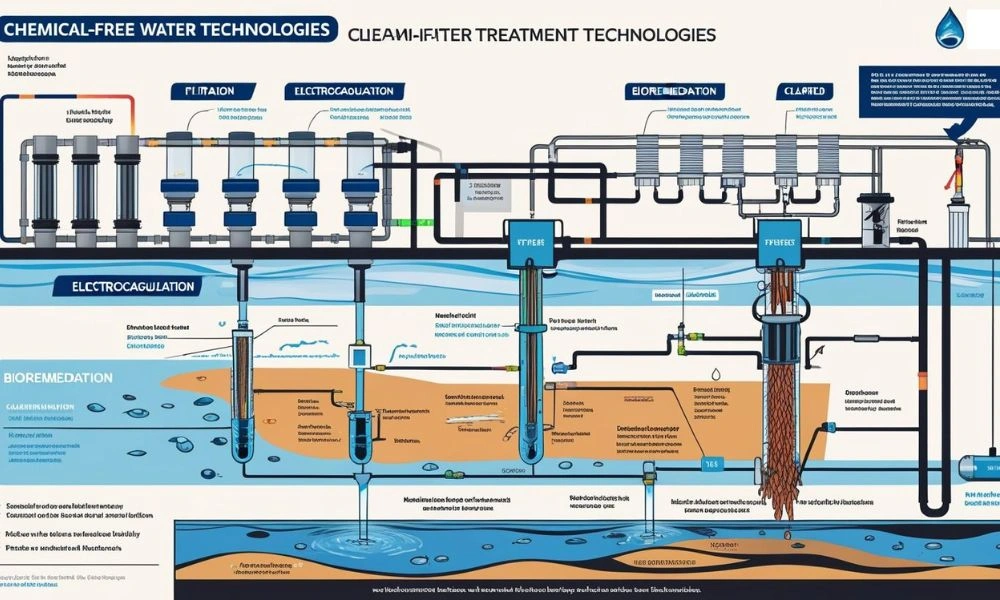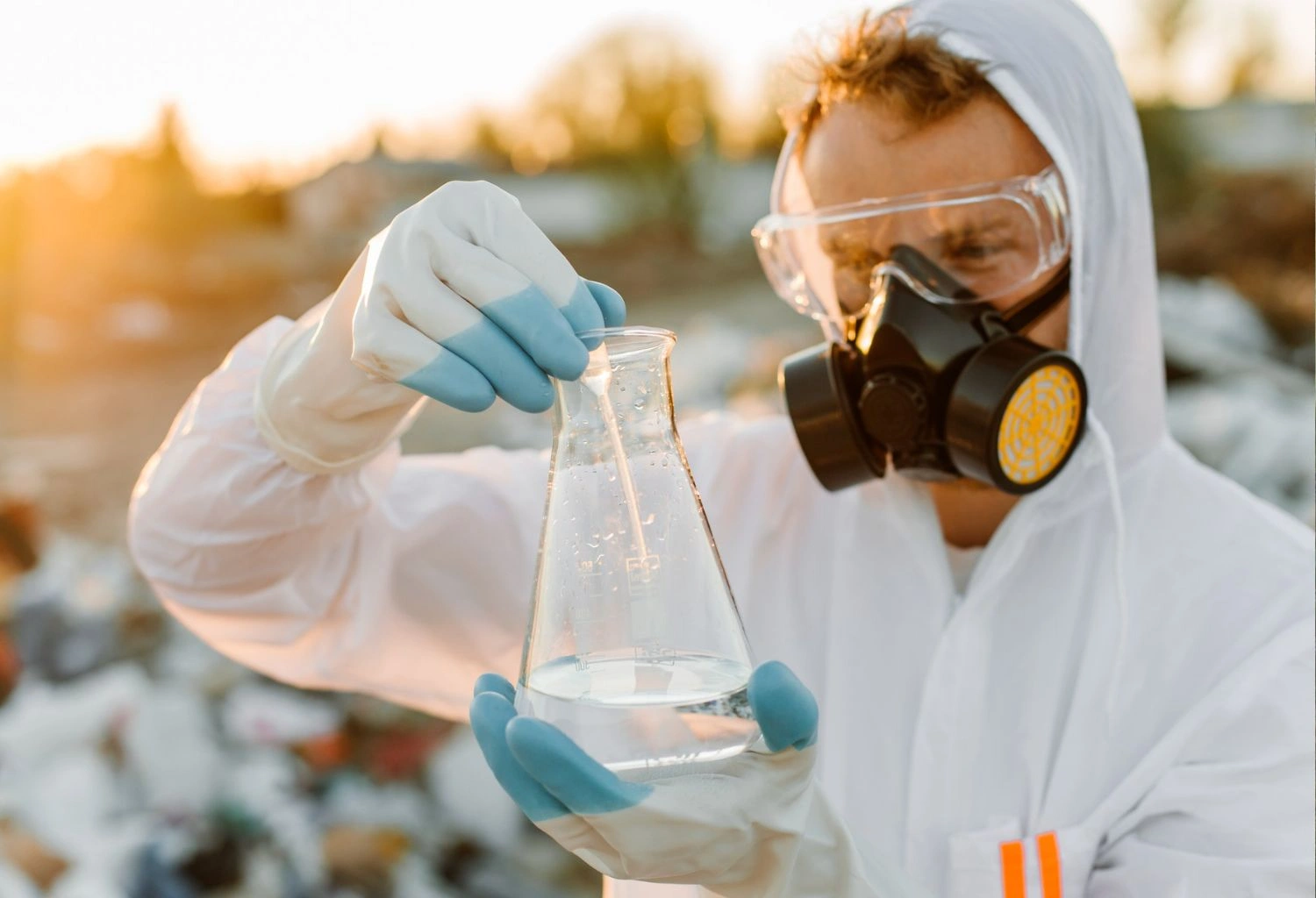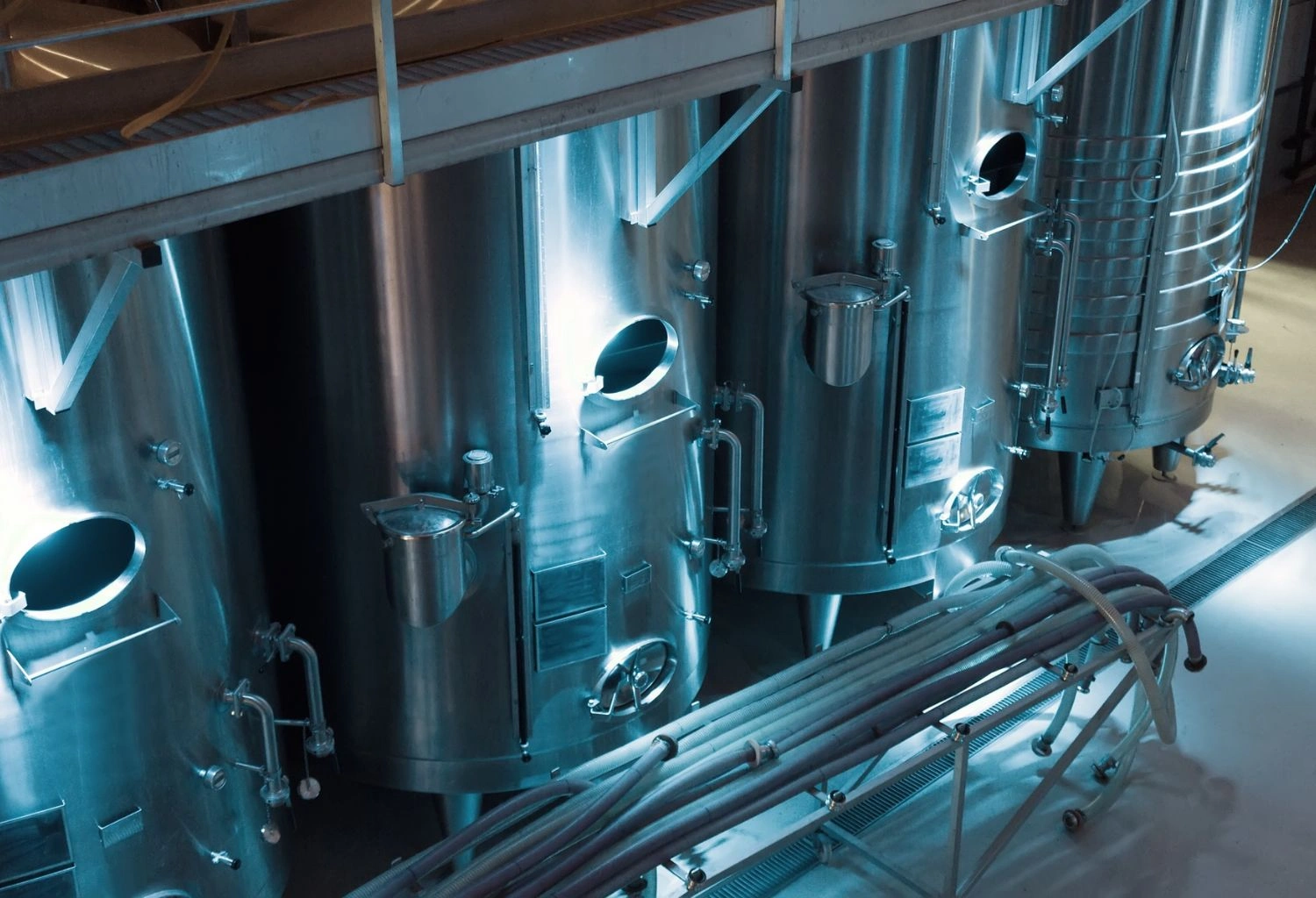Chemical-free water treatment is a revolutionary approach to wastewater management that eliminates the need for harmful chemicals. By utilizing filtration, bioremediation, and electrocoagulation, industries can improve water quality, reduce costs, and promote sustainability. WCSP is at the forefront of this shift, providing innovative, eco-friendly solutions for a wide range of industries.
Chemical Free Water Treatment
How does chemical-free water treatment improve sustainability?
Water shortage is a rising issue across the globe. As industries try to find sustainable solutions to treat wastewater, conventional chemical-based technologies are being substituted by greener and more sustainable solutions. Chemical-free water treatment is becoming the preferred choice for industries seeking to minimize their environmental impact, enhance efficiency, and save money.
In this article, we’ll dive deep into chemical-free water treatment, explore how it works, its benefits, and how companies like Water Care Services Pakistan (WCSP) are adopting this approach to revolutionize water treatment processes.
What is Chemical-Free Water Treatment?
Chemical-free water treatment means treating or purifying water without the use of chemicals like chlorine, sulfuric acid, or aluminum sulfate. This process instead uses natural processes, high-tech methods, and minimal intervention, thus being both eco-friendly and affordable.
Why is Chemical-Free Water Treatment Important?
The transition to chemical-free water treatment is not merely about the reduced use of chemicals. It’s about enhancing our interface with nature. Here’s why it’s important:
1. Environmental Impact
The application of conventional chemicals in water treatment tends to create toxic by-products that pollute water bodies, threaten aquatic organisms, and destabilize ecosystems. With chemical-free techniques, the pollution is minimized, providing cleaner water for generations to come.
2. Health Benefits
Most of the chemicals applied in conventional water treatments are harmful to human health. Chlorine and other disinfectants, for instance, may form dangerous by-products that pollute water. Chemical-free water treatments erase such danger, and the treated water becomes safe for use and consumption.
3. Sustainability
As we journey towards a greener future, companies are under pressure to become more sustainable. Chemical-free water treatment is the perfect fit for sustainability objectives as it limits chemical waste and decreases resource usage.
Important Advantages of Chemical-Free Water Treatment
Why are industries globally trending towards chemical-free water treatment? Here’s why:
1. Cost-Efficiency
Although the initial installation of chemical-free water treatment may be slightly more expensive, companies realize savings in the long term by lowering chemical buying, disposing, and upkeep expenses. With time, the return on investment is evident.
2. Less Chemical Waste
Chemical-free water treatment keeps less toxic chemicals into the environment. Not only is the ecosystem benefited but also wastage disposal expenses are minimized.
3. Better Water Quality
Chemically untreated water usually comes out with better quality. Without any chemical residues remaining behind, chemically treated water is cleaner and more secure for a range of industrial and farming applications.
4. Sustainability and Eco-Friendly
Without chemicals and dangerous by-products, chemical-free water treatment is an integral part of sustainability. It assists industries in cutting their carbon footprint and developing more eco-friendly practices.
5. Long-Term Reliability
Chemical-free water treatment systems are designed to last, with fewer maintenance requirements and less wear and tear compared to traditional systems.
Chlorination System
How WCSP is Revolutionizing Water Treatment with Chemical-Free Methods؟
Water Care Services Pakistan (WCSP) has been at the forefront of water treatment technologies all along. In line with a large emphasis on sustainability, WCSP has adopted chemical-free water treatment technology for numerous industries. From food processing to textile production, WCSP develops customized solutions that suit the precise requirements of its customers.
WCSP’s chemical-free water treatment expertise has positioned it as a market leader in Pakistan, enabling businesses to meet environmental and business objectives.
Industries Adopting Chemical-Free Water Treatment
A number of industries are turning to chemical-free water treatment technologies to treat their wastewater. Some of the industries that have benefited are:
- Textiles – Treating dye and chemical-infested water effectively without poisonous chemicals.
- Food & Beverage – Providing cleaner and healthier water for manufacturing without chemicals.
- Pharmaceuticals – Treating wastewater without introducing harmful chemicals, maintaining product purity.
- Oil & Gas – Minimizing the environmental footprint of wastewater management using eco-friendly technologies.
Challenges in Adopting Chemical-Free Water Treatment
Though the advantages are obvious, chemical-free water treatment does have some drawbacks:
- Initial Investment – Installation of these sophisticated systems can be more expensive than conventional methods.
- Technology Compatibility – Some current systems might need upgrading or revising to include chemical-free solutions.
- System Complexity – Some technologies could be difficult to handle and need specialized handling.
These hindrances, though, are easily overcome by the long-term advantages of chemical-free systems, including lower operation costs, improved water quality, and fewer environmental hazards.
Conclusion
Chemical-free water treatment is the way forward for water management. As industries strive to become increasingly sustainable, abandoning the use of conventional chemical-based means will be a key factor in cutting down on environmental pollution, enhancing water quality, and lowering costs. Organizations such as Water Care Services Pakistan (WCSP) are at the forefront of this movement, demonstrating how embracing these new, environmentally friendly technologies can be good for business as well as the planet.
Frequently Asked Questions (FAQs)
1. What is chemical-free water treatment?
Chemical-free water treatment refers to purifying water without the use of chemicals like chlorine or aluminum sulfate, relying on natural processes and eco-friendly technologies.
2. Why is chemical-free water treatment important?
Chemical-free water treatment reduces toxic by-products, minimizes environmental pollution, protects aquatic life, improves human health, and supports sustainability by reducing reliance on harmful chemicals.
3. What are the advantages of chemical-free water treatment?
The main advantages include cost-efficiency, better water quality, reduced chemical waste, improved sustainability, and long-term reliability with minimal maintenance requirements.
4. How does chemical-free water treatment improve water quality?
Chemical-free methods produce cleaner water by eliminating harmful chemical residues, making it safer for industrial, agricultural, and domestic use.
5. What industries can benefit from chemical-free water treatment?
Industries such as textiles, food & beverage, pharmaceuticals, and oil & gas benefit by using chemical-free methods to treat wastewater efficiently and safely.
6. Is chemical-free water treatment more expensive?
The initial investment can be higher, but over time, savings from reduced chemical purchases, waste disposal, and maintenance make it more cost-effective in the long run.
7. What are the environmental benefits of chemical-free water treatment?
By minimizing toxic chemical discharge and reducing waste, chemical-free water treatment contributes to cleaner ecosystems, lower carbon footprints, and better overall environmental health.
8. Can chemical-free water treatment handle all types of wastewater?
Chemical-free treatment is particularly effective for industries with non-toxic pollutants or wastewater that can be treated via natural processes, but some complex systems may require additional support.
9. What challenges are there in adopting chemical-free water treatment?
Challenges include higher initial installation costs, the need for system upgrades, and potential complexity in handling advanced technologies, but long-term savings outweigh these obstacles.
10. How is WCSP implementing chemical-free water treatment?
Water Care Services Pakistan (WCSP) designs and installs customized, chemical-free water treatment systems for various industries, helping businesses meet sustainability goals and environmental regulations with eco-friendly solutions.



